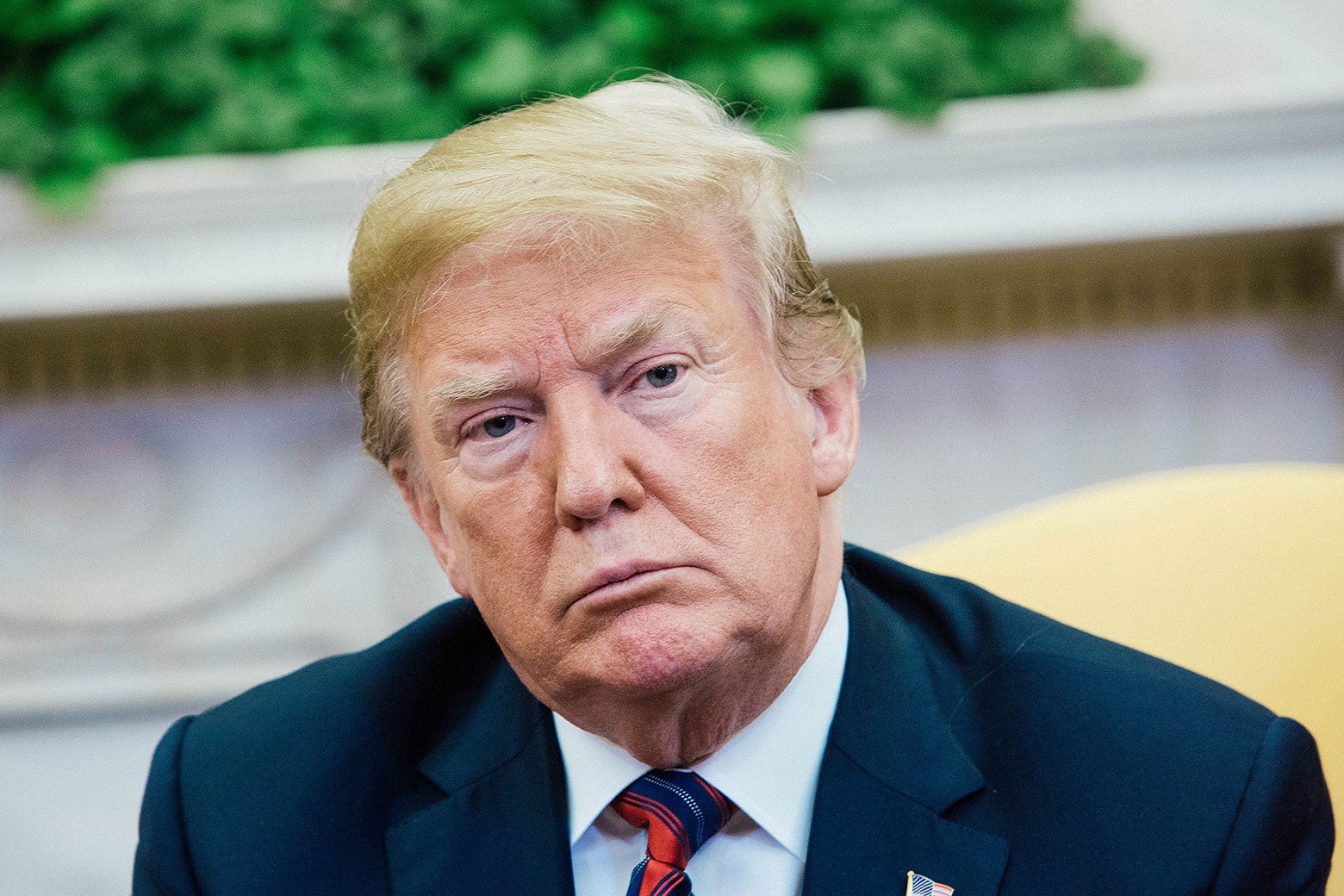Last month, during a roundtable conversation on immigration, President Trump decried the “animals” entering the United States. “We have people coming into the country, or trying to come in—and we’re stopping a lot of them—but we’re taking people out of the country. You wouldn’t believe how bad these people are,” he told a group of California sheriffs. “These aren’t people. These are animals.”
Critics accused the president of dehumanizing immigrants, while his conservative defenders accused major news outlets of taking Trump out of context, claiming he was referring specifically to MS-13 gang members. Both sides dug in, and the fight eventually ended in a draw, as new controversies overtook the news cycle.
But if Trump’s meaning was debatable then, it’s certainly clear now, as the president defends his commitment to separating immigrants’ families at the Southern border and refuses to budge in the face of broad criticism and condemnation. The “animal” comments help explain his core beliefs, which his recent remarks make crystal clear: President Trump sees all Hispanic immigrants—and not just MS-13—as “animals” threatening the cultural and racial integrity of the United States.
News outlets—and liberal critics—were right to tie his “animal” comments to a broader attack on undocumented immigrants. That was the context then, and Trump continues to use dehumanizing language now, casting all immigrants as bent on crime and violence, likening their presence to an infestation of the United States. “Democrats are the problem. They don’t care about crime and want illegal immigrants, no matter how bad they may be, to pour into and infest our Country, like MS-13,” the president declared on Tuesday. “They can’t win on their terrible policies, so they view them as potential voters!”
Those comments echoed a Monday-morning rant, in which Trump railed against Democrats for their alleged silence on crime and gangs, tying both to immigrants: “Why don’t the Democrats give us the votes to fix the world’s worst immigration laws? Where is the outcry for the killings and crime being caused by gangs and thugs, including MS-13, coming into our country illegally?” Later, he attacked German Chancellor Angela Merkel’s policy on refugees, falsely blaming migrants for a purported rise in crime, before going on a racist rant against asylum-seekers during a White House event to announce a new “space force.” “The United States will not be a migrant camp and it will not be a refugee-holding facility. It won’t be,” he said, adding “a country without borders is not a country at all” and blaming immigrants for “death and destruction.” “They could be murderers and thieves and so much else.”
This will only get worse as November approaches and the president fights to hold a Republican majority in Congress. To energize its voters, the White House plans a campaign of vicious demagoguery. “People don’t turn out to say thank you,” said political adviser Corey Lewandowski to the New York Times, “If you want to get people motivated, you’ve got to give them a reason to vote. Saying ‘build the wall and stop illegals from coming in and killing American citizens’ gives them an important issue.” Part of the strategy involves additional crackdowns on immigrants, to demonstrate the administration’s commitment to these draconian policies.
In the meantime, conservative media has embraced the overt racism and dehumanization of the administration, from downplaying the cruelty of the child detention camps—”Some have referred to them as ‘cages,’ but … they built walls out of chain-link fences,” said Steve Doocy of Fox & Friends—to championing a white-nationalist message. “They care far more about foreigners than about their own people,” said Tucker Carlson on his own Fox show, blasting the “ruling class” for its opposition to family separation.
While some Republicans have backed away from the policy, others have charged in defense, adopting Trump’s language and rhetoric. “Dems’ Keep Families Together Act is better called the Child Trafficking Encouragement Act,” declared Arkansas Sen. Tom Cotton on Twitter, spinning a fantasy that falsely casts asylum-seekers as dangerous criminals. “Show up at border with a minor & call him your child, then you get released into the US! Children will be abducted & sold to drug cartels & slave-traders as a free ticket into US.”
It was always clear Trump would lean on racism to try to win the midterms. What’s now apparent is the shape and scope of that appeal. In 2015, when he kicked off his campaign by calling immigrants “rapists” and drug dealers, Trump also tried to give himself a sheen of plausible deniability: “Some, I assume, are good people.” But in 2018, he intends an unvarnished message of brutality and dehumanization; a white-supremacy campaign for the 21st century.
